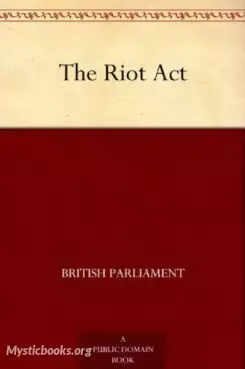Parliament of the United Kingdom of Great Britain
The Parliament of the United Kingdom is the supreme legislative body of the United Kingdom, the Crown dependencies and the British overseas territories. It alone possesses legislative supremacy and thereby ultimate power over all other political bodies in the UK and the overseas territories. Parliament is bicameral but has three parts, consisting of the sovereign (Crown-in-Parliament), the House of Lords, and the House of Commons (the primary chamber). Both houses of Parliament meet in separate chambers at the Palace of Westminster in the City of Westminster, one of the inner boroughs of the capital city, London.
The House of Lords includes two different types of members: the Lords Spiritual, consisting of the most senior bishops of the Church of England; and the Lords Temporal, consisting mainly of life peers, appointed by the sovereign, and of 92 hereditary peers, sitting either by virtue of holding a royal office, or by being elected by their fellow hereditary peers. Prior to the opening of the Supreme Court in October 2009, the House of Lords also performed a judicial role through the Law Lords.
The House of Commons is an elected chamber with elections to 650 single-member constituencies held at least every five years under the first-past-the-post system. By constitutional convention, all government ministers, including prime minister, are members of the House of Commons or, less commonly, the House of Lords and are thereby accountable to the respective branches of the legislature. Most cabinet ministers are from the Commons, whilst junior ministers can be from either house.
With the global expansion of the British Empire, the UK Parliament has shaped the political systems of many countries as ex-colonies and so it has been called the "Mother of Parliaments".
In theory, the UK's supreme legislative power is officially vested in the Crown-in-Parliament. However, the Crown normally acts on the advice of the prime minister, and the powers of the House of Lords are limited to only delaying legislation; thus power is de facto vested in the House of Commons.
The Parliament of Great Britain was formed in 1707 following the ratification of the Treaty of Union by Acts of Union passed by the Parliament of England (established 1215) and the Parliament of Scotland (c.1235), both Acts of Union stating, "That the United Kingdom of Great Britain be represented by one and the same Parliament to be styled The Parliament of Great Britain." At the start of the 19th century, Parliament was further enlarged by Acts of Union ratified by the Parliament of Great Britain and the Parliament of Ireland (1297) that abolished the latter and added 100 Irish MPs and 32 Lords to the former to create the Parliament of the United Kingdom of Great Britain and Ireland. The Royal and Parliamentary Titles Act 1927 formally amended the name to the "Parliament of the United Kingdom of Great Britain and Northern Ireland", five years after the secession of the Irish Free State.
Books by Parliament of the United Kingdom of Great Britain

The Riot Act
The Riot Act 1714 was an act of the Parliament of Great Britain which authorised local authorities to declare any group of 12 or more people to be unlawfully assembled and to disperse or face punitive action. The act's long title was "An Act for prev...
